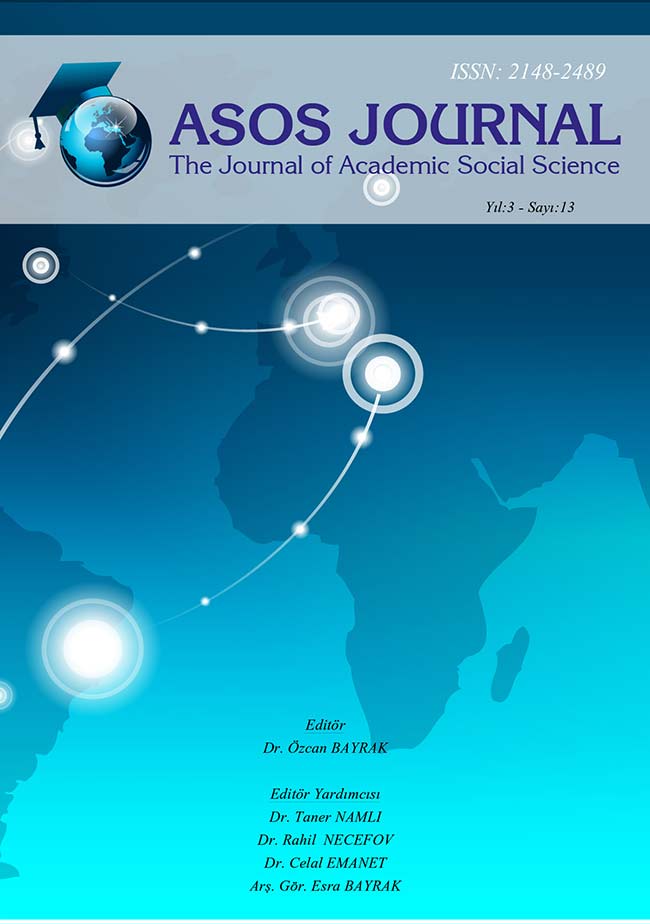İSOKRATES’İN RETORİK ANLAYIŞININ BERTRAND RUSSELL’IN İDEAL DİL ve LİMİTSİZ BELİRSİZLİK GÖRÜŞLERİ ÇERÇEVESİNDE DEĞERLENDİRİLMESİ
Author :
Abstract
Nietzsche “Dili ciddiye alın!” diyor. Dilin daha ziyade iknâ vasıtası olarak hizmet verdiği zamanlardan, onun teorisi üzerine kafa yorulduğu çağa atlamak bizi “pratik” ve “teori” çatışması ile karşı karşıya bırakmaz. Mukayeseden çıkarılacak çok daha mühim neticelerin olması böylesine basit bir değerlendirmeyi gölgede bırakır. Sofistlerin para kazanma aracı olarak kullandıkları “dil” aslında sadece yüzeysel olandır. Yani her ne olursa olsun muhatabı ikna etmek için odaklanmış bir “konuşma” ortama ve zamana göre büyük değişiklikler gösterebilir. Oysa doğrunun bir tek olması, zamana ve mekana göre dayanıklılık göstermesi gerekir. Bu noktada mantıksal bakımdan mükemmel, muğlak olmayan, tam/kesin bir dilin günlük konuşma için uygun olmadığını zaten tespit etmiştir Russell. Peki bu iki kullanımdan (ideal lisan ve hatibin dili) hangisi “ciddiye alınmalı”dır?
Keywords
Abstract
Nietzsche says, "Take the language seriously". We do not enter into the conflict of "practice" and "theory" as we move into the era where one has broken on the theory of language upside down when the language has served more as a means of persuasion. The fact that the from the comparison there appear much more important results, leaves such a simple assessment in the shade. The "language" the sophists have served as a means to earn money is only a superficial in reality. This means that a "speech", which focuses on persuading the addressee, depending on the time and place can show changes in spite of everything. Instead, the truth should be one and can withstand against time and place. At this point Russell has determined that, a language which is perfect and not vague, from a logical point of view, is not suitable for everyday conversation. But which of these uses (ideal language and the language of the speaker) should be "taken seriously"?





